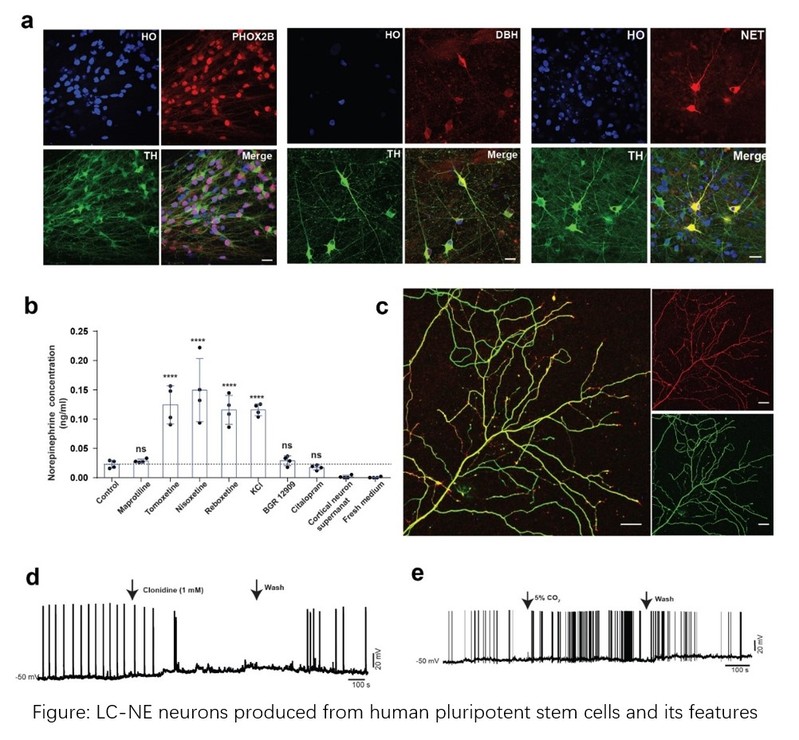Norepinephrine (NE) neurons in the locus coeruleus (LC) regulate heartbeat, blood pressure, arousal, memory, attention and “fight or flight” reactions. Humans have approximately 50,000 LC-NE neurons in the hindbrain, where the locus coeruleus is. From there, the LC-NE neurons reach into all parts of the brain and the spinal cord. In many neurodegenerative diseases such as Alzheimer’s and Parkinson’s, the neurons start degenerating at a very early stage — sometimes years before other brain regions begin to falter. However, its role in diseases is poorly understood since there was no good model to mimic the human LC-NE neurons in vitro.
Yunlong Tao’s group has uncovered a novel role of ACTIVIN-A, a protein that belongs to a family of growth factors, in regulating the specification and neurogenesis in human NE neurons. Based on that finding, His group has successfully generated locus coeruleus norepinephrine neurons from human pluripotent stem cells. Once generated in vitro, the cells showed typical characteristics of functioning LC-NE neurons in the human brain, releasing the neurotransmitter norepinephrine. They also showed axonal arborization—extension of the long, branching arms of neurons that enable the connections between brain cells—and reacted to the presence of carbon dioxide, which is crucial for breathing control.
As proof of conception, Dr Tao also demonstrated the potential application in drug screening against depression. The successful generation of LC-NE neurons will enable disease modeling, drug discovery and cell therapy for neurodegenerative diseases in future.
Yunlong Tao, a PI in State Key Laboratory of Pharmaceutical Biotechnology, School of Life Sciences, Chemistry and Biomedicine Innovation Center (ChemBIC) at Nanjing University is the first and corresponding author. Su-Chun Zhang, a UW–Madison professor of neuroscience and neurology, is the co-corresponding author. Their work was published by a top tier journal Nature Biotechnology on 11/17/2023. Yunlong Tao is also actively hiring excellent postdocs in his lab. For those who are interested in neural differentiation and neural regeneration research, please send the application to taoyunlong@nju.edu.cn.

